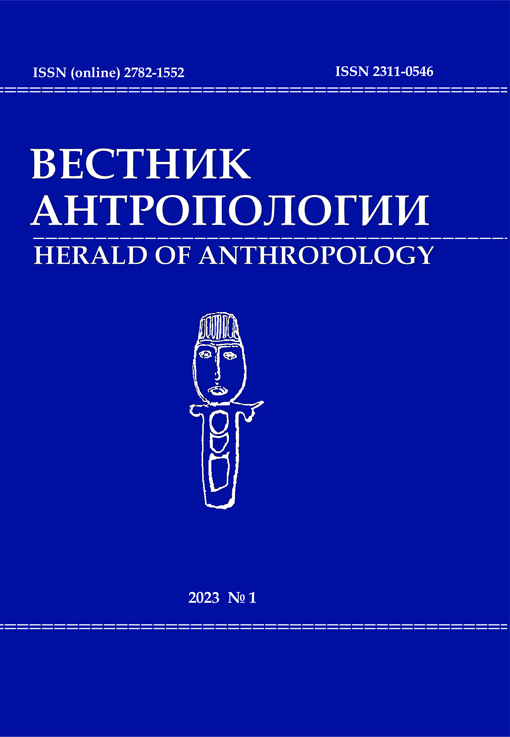Aggressive and Postconflict Behavior Among Children, Body Sizes and Distance of Communication: Cross-cultural Comparison on the Example of Moscow and Tbilisi
DOI: 10.33876/2311-0546/2023-1/300-318
Keywords:
children, aggression, postconflict behavior, body size, distance of communication, Russian, GeorgianAbstract
Studies on the relationship between body size and aggression using psychological questionnaires indicate the presence of this correlation in children and adolescents, but the results are contradictory. This study was conducted using direct non-involved observation of children from two ethnic groups at the playgrounds of Moscow (Russia) and Tbilisi (Georgia). 288 conflicts were recorded (183 — Russians, 105 — Georgians). The strategies of aggression and reconciliation are analyzed taking into account the body size of the participants and their spatial behavior, which made it possible to identify the universal and culturally specific features of these types of behavior in the natural game interaction. This is the first time aggression and reconciliation are being studied in the light of these relationships. The contribution of morphological (sex, body size) and psychological (aggression and reconciliation strategies used) characteristics of a person to the expression of aggressive and post-conflict behavior is universal — cultural differences manifested themselves in the types of aggression and reconciliation. Spatial characteristics were determined by the ethnicity factor — Georgian children communicated at a shorter distance in all phases of the conflict. Our data do not support previous findings that taller, larger students score lower in aggression, while shorter, thinner students are more hostile and prone to fighting and arguing. Our observations support the idea of an imbalance of power between the aggressor and the victim and indicate that in most cases the offender is taller and larger than the victim. However, children show a high reconciliatory potential, which indicates that children understand the importance of maintaining the integrity of the group.





















